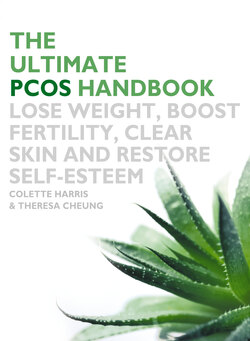Читать книгу The Ultimate PCOS Handbook - Theresa Cheung - Страница 36
AFTER THE MENOPAUSE
ОглавлениеBecause we now have longer life spans and often live well into our eighties, modern women are usually post-menopausal for a third of their lives.
So does PCOS fade away after the menopause? ‘This is probably the most asked question by women over age 40 with PCOS,’ says PCOS expert Samuel Thatcher, ‘The answer to which is, No!’
This was shown in a study9 from Kaplan Medical Centre in Israel, which evaluated 104 post-menopausal women by physical examination, detailed questionnaire and laboratory measurements of glucose, blood fats and sex-hormone levels. Seven (6.7 per cent) of the women were diagnosed with PCOS. As compared to women without PCOS, central obesity (fat around the stomach) was more common in the PCOS group, 4 out of 7 had Type 2 diabetes compared to 8 out of 97 in the non-PCOS group, and 6 out of 7 (versus 31 out of 97) had elevated blood fats (triglycerides, cholesterol) characteristic of the Metabolic Syndrome (Syndrome X). PCOS appears to be fairly common in post-menopausal women, and is a marker for a metabolic profile associated with a high risk of cardiovascular diseases.
‘I really noticed “middle-aged spread” as I put weight on my tummy. But then so did my friends without PCOS when they went through menopause.’
Jan, 56
To recap: We know that women with PCOS are already at an increased risk of developing diabetes, heart disease and endometrial cancer. Because such risks only increase with age, treating PCOS both during and after the menopause is essential.
